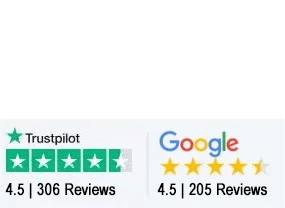Learning Your New Country’s Language

Get a Free Moving Quote Now!
Start Your International Moving Journey





While it’s true that you can immerse yourself in the country’s culture better by moving there, learning a language can be a bit more complicated. Moving abroad is a long process to plan, so you may not have time to pick up a Rosetta Stone while hiring international movers and collecting all of the right documents. Though it is ideal to begin learning your new country’s language prior to your move, don’t panic if you haven’t. Read on for some tips on how to break down language barriers and start speaking like your new country’s natives in no time.
Learn with books, classes, and online tools
You may be far beyond the language classes you were required to take in high school, which were complete with heavy textbooks and corresponding workbooks full of homework assignments. However, if you still prefer this learning method, you can find these textbooks at your local used bookstore before you head overseas. Your best bet would be a nearby university bookstore – you may even be able to snag a workbook or audio CD to aid in your learning, perfect for a long flight to your destination!
- Supplemental CDs/DVDs: Many textbooks and other language-learning tools come with a DVD that walks you through pronunciation and summarizes each chapter for you. It is always best to take full advantage of your CD or DVD.
- Audio/online software: The most popular software for language learning is Rosetta Stone. It will cost more than simply purchasing a book or two, but it touts a high success rate in a short time period and is cheaper than any language class taken in college. You could also try more affordable web-based online tutorials, like Pimsleur and Livemocha (partners with Rosetta Stone).
- Take online or traditional classes: There are plenty of opportunities for you to enroll in an online language course, which will generally provide all of the aforementioned materials needed to master the language (books/e-books, worksheets, quizzes, instructor aid, audio, etc.).
- There’s an app for that: If your smartphone is permanently affixed to your hand, downloading a free application to help you learn your new country’s language won’t be too hard. In this digital age, there are plenty of apps like Duolingo that can help you learn a language anywhere you go.

Dive into the culture
The best way to truly learn a new language is to begin speaking it with native speakers as soon and as often as possible. Sure, you may be a little shy and embarrassed the first few times you pronounce a word wrong – but don’t let that stop you! The more practice you get, the fewer these mistakes will happen over time. Here are a few things you can do:
- When you go out, order food or drinks in the native language: A good way to get your feet wet when speaking the language with fluent speakers is to begin with your food menu. Try not to use any English when you order and take in any pronunciation corrections from your server.
- Speak with locals who do not speak English: If you want to learn the language quickly, there’s no better way than to get out of your comfort zone and be forced to speak this new language. You can get insight from locals on colloquial phrases and other pronunciations that your books and online tutorials may not provide.
- Watch movies, read books: Try watching a foreign film without subtitles and see how much you can pick up. Watch the same movie again after you’ve been speaking the language for a little while, and track your improvement. And while books may not give you practice speaking, it will help speed up your comprehension so you can form sentences more quickly while speaking.
- Don’t get stressed: Always remember you won’t learn a brand new language overnight – everybody learns at a different pace, so don’t beat yourself up if you haven’t mastered it right away. Language barriers can be frustrating, and you may experience a bit of culture shock while you learn, but stay calm and patient, and it will pay off in the end.
